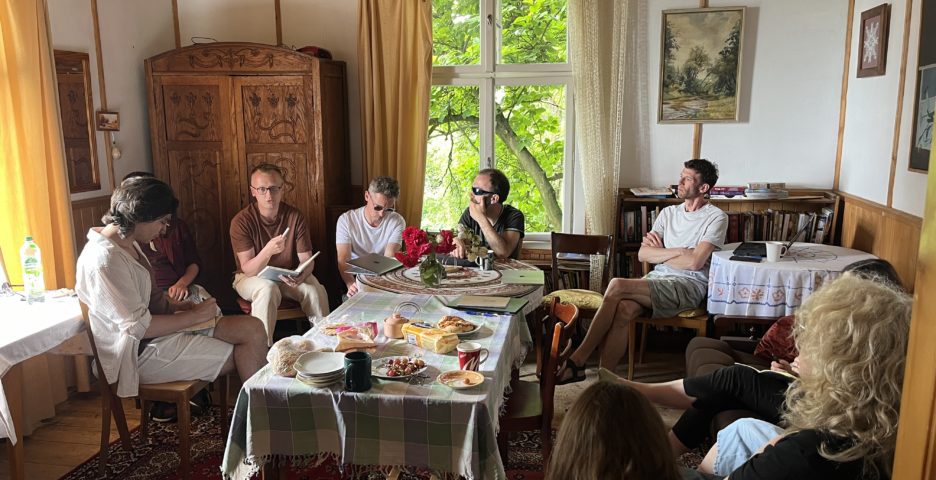At the end of June, Magdalena Bubík participated in a seminar organized by scholars from the Institute of History at Jagiellonian University in Kraków. The weekend gathering was designed as an intensive workshop: participants submitted works-in-progress beforehand, which were then discussed in a group setting. Chapters of dissertations, drafts of books, and early versions of articles all found their place at the seminar table.
Magdalena also had the chance to share her article about the church of St. Johns’ in Piła. This church has appeared on our posts before, as it is closely tied to her research interests. Until the mid-19th century, St. Johns’ was the only church in the city. Like many other buildings, it was destroyed during the so-called “liberation” of the city in 1945, and thirty years later it was torn down entirely. Today, the Gromada Hotel stands in its place.
Although it was a Catholic church, Magdalena, who is doing her research on Protestant communities, felt compelled to write about it. Not only because of its religious significance, but also because its history reflects the lives of the city’s residents and the profound changes they experienced. The exchange of population–mainly Protestant Germans for Catholic Poles–influenced that the church was perceived as a ‘bastion’ of Polishness during the Prussian and German administration. However, the building is no longer there. In its place stands a hotel, which is also intended to serve as a link to the past. Presenting the article at the seminar proved especially valuable: the discussion brought many insights, suggestions, and constructive feedback that will help shape the final version of Magdalena’s work. Among the mentors were historians Barbara Klich-Kluczewska (Jagiellonian University of Kraków), Katarzyna Stańczak-Wiślicz (University of Warsaw), Dobrochna Kałwa (University of Warsaw), Marcin Jarząbek (Jagiellonian University of Kraków), and Tomáš Pavlíček (Masaryk Institute and Archives of the Czech Academy of Sciences).
Adding to the experience was the seminar’s setting. Held in the picturesque village of Lanckorona, just outside Kraków, the gathering offered the perfect backdrop for thoughtful conversation and reflection. Surrounded by quiet landscapes, the participants could immerse themselves not only in texts but also in the atmosphere that fostered new ideas.

